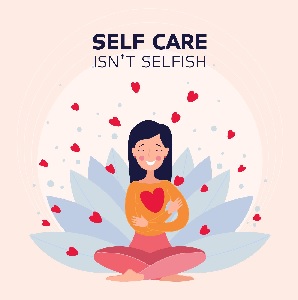
From the time I can remember, I have heard the saying “Love unconditionally.” Well, to say you should be conditional in love would be an overstatement and maybe a controlling approach to loving someone if overdone. But whether it is wise to love totally unconditionally is something that has always perplexed me. Here again, the word wise could lead to a debate on whether love is a feeling that is the calculated product of too much thought put into making a decision or not. Many would argue that love just happens, that you can’t think of it as a wise decision like an investment, that it is way too organic to be a wise decision.
People keep glorifying love by saying “Love expecting no returns.” This is probably another version of “Love unconditionally.” But how good is it for one to love another never expecting anything back? And by anything, I don’t necessarily mean materialistic motives. I mean, if you can say you will love someone only if they pay for your dates or buy you expensive gifts, I don’t think you understand what love is. But what about the basics? Basic respect, affection, concern, care, efforts put into the relationship.
Loving unconditionally to an extent is a good thing. Which means, you are not blinded by nitpicking every single flaw in a person to the extent of not seeing the bigger picture and ruining a possibly amazing relationship despite your flaws and the other’s. And ideally, true love should be just that. Where you know that you embrace the flaws because the goodness is much greater in magnitude. But how far do you go in embracing someone’s flaws? Where do you draw the line? If you accept and embrace every red flag because you know, “true love,” you are being unjust to yourself, denying yourself the same amount of love and acceptance.
Sometimes, you just have to set down “conditions,” which if not met means you are being a pushover. And sometimes, despite having to draw the line or setting boundaries, you still love someone. But whether that love should define you and your entire being is a question you have to ask yourself. Whether it is worth your mental health to cling on to a relationship where you are getting nothing back is another question.
I guess this works for every relationship. Even with your kids, once they are all grown up. I know, that sounds blasphemous! Of course, you would always love your kids because they are yours. You don’t and shouldn’t do things for them because you want to keep account of those and make them pay back, in love or in kind. But does that mean you will always keep giving in every way you can even if emotionally there is never a return? You would always wish them well, but you might not always choose to be an active part of their lives. And it could very well be the same story if the roles were reversed too. As a child, you might choose to give and give and not feel like you’re getting anything back, and you might choose to walk away. It’s the same with friends, even those of years and decades. Sometimes you just realize that you are only giving but not getting, and you keep the happy memories safe in your mind and say goodbye.
Why should such goodbyes or distances be looked at as cruelty, only because one was supposed to “love expecting no returns?” I say, be clear of what you want and what you are willing to let go of, in any relationship that you are part of. You can still love by all means, but just how much of a relationship you want with someone who isn’t ready to give you back what you deserve, that is totally your call. Never feel guilty about it. Never call yourself selfish for it. Do love unconditionally, only if the conditions really do not matter, not if they change your whole being, not if they make you crumble inside slowly and break you down in the long run. Because no one, I repeat, no one is worth it.
Also published on Medium.
Leave a Reply